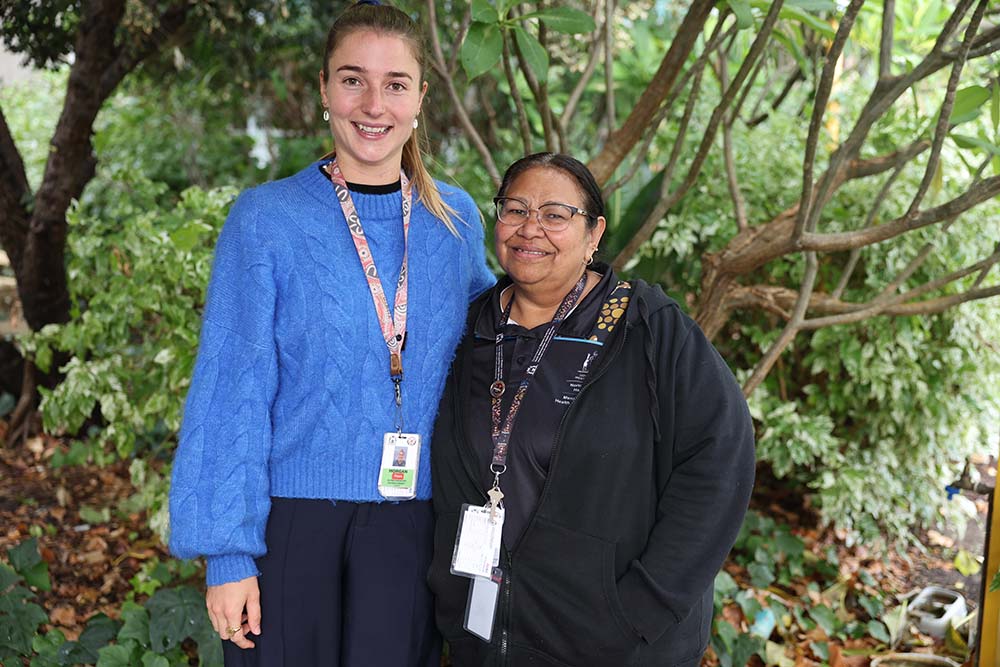Meet Aboriginal Health Champion Morgan

Our Aboriginal Health Champions Program recognises those who take the time to ensure Aboriginal people feel culturally safe when accessing our services.
Morgan, a physiotherapist at our State Head Injury Unit, is just one person who has been nominated as an ally for the program.
Aboriginal Health Liaison Officer Rebecca was able to share her cultural knowledge to support Morgan in her service delivery.
Thanks to her support, Morgan was able create space during her sessions to allow Aboriginal clients to feel safe, seen and heard.
Morgan was nominated for recognising that every person is unique and has a story to tell.
She always makes sure she creates space during her sessions to allow Aboriginal clients to feel safe, seen and heard.
After recently completing a secondment in Broome, Morgan said she was able to get a valuable insight into the culture and the communities in the Kimberley.
“Being in Broome provided me with many experiences to reflect on, allowing me to share stories and compare experiences with current clients who are from the Kimberley."
She emphasised that chats to our Aboriginal Health Liaison Officers (AHLOs) have helped her to understand how to create a culturally-safe environment.
“Their expertise helps me to know what services are available, or if a client would benefit from their input to help build cultural trust and safety," Morgan said.
She takes time to gain a good understanding of symptoms and experiences, and relaying this information to other health care providers to ensure they don’t miss out on the treatment needed.
“This can include what the best method of contact is, if there is an alternative contact person, and any significant cultural or family events that may be coming up which will influence the timing and delivery of services,” Morgan said.
She continues to educate herself about Aboriginal cultures, histories and healthcare experiences to broaden her insight into the different experiences that clients may have had in their lives or their familial line.
“It allows me to work with increased empathy and care, and be aware of the importance of providing an equitable service, as a one size sits all approach will not achieve beneficial outcomes," she said.
Morgan's advice to clinicians wanting to become an ally to Aboriginal patients is to get out there and experience Aboriginal culture, by going on local tours, listening to podcasts, reading books, or travelling to rural and remote places and simply having a chat with locals.
Increasing our Aboriginal workforce, particularly in service areas where there are large numbers of Aboriginal patients, also helps to build cultural safety.
With the help of our AHLOs, Morgan has been able to help make a difference for Aboriginal clients and said it has been incredible to witness the improved outcomes.
Here at NMHS we are committed to partnering with our communities to ensure our services are culturally safe and responsive for all Aboriginal people, in line with our strategic plan.

